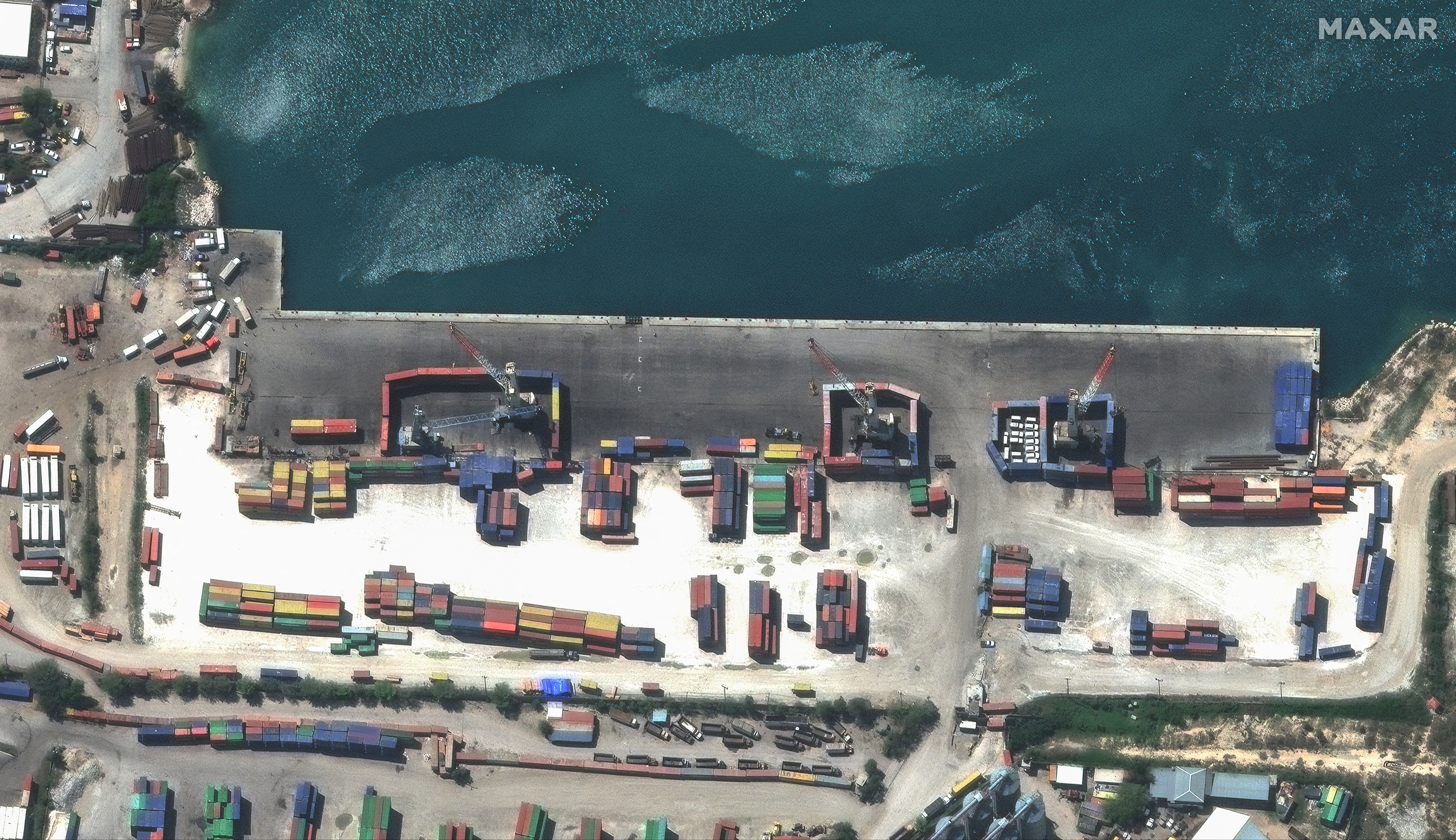
A satellite image shows shipping containers used to block access to heavy cranes, in Port-au-Prince, Haiti, March 14, 2024, in this handout image. Maxar Technologies/Handout via REUTERS/File Photo
PORT-AU-PRINCE — The UN children’s agency said on Saturday one of its aid containers at Haiti’s main port, stocked with “essential items for maternal, neonatal and child survival,” was looted, as gangs increasingly control the capital.
Haiti is struggling to resolve a long-running political and humanitarian crisis that the children’s agency, Unicef, has warned is causing record hunger and life-threatening malnutrition in parts of the capital Port-au-Prince.
The unelected prime minister, Ariel Henry, said this week he would step down once a transitional council was in place. Heavily armed gangs have taken over much of the city, and rights groups have reported widespread killings, kidnappings and sexual violence.
READ: Haitian PM tenders resignation after Jamaica talks
Unicef said one of its 17 containers had been looted at the Port-au-Prince port, where it said 260 humanitarian-owned containers were controlled by armed groups.
“Looting of supplies that are essential for life saving support for children must end immediately,” said Bruno Maes, Unicef’s Haiti representative, in a statement.
READ: Haitians voice skepticism at proposal for interim government
“This incident occurs at a critical moment when children need them the most.”
The supplies in the looted container included resuscitators and related equipment, Unicef said. The agency warned that three out of four women in the Port-au-Prince area do not have access to basic healthcare and nutrition.
Also in Port-au-Prince, some hospitals have been forced to close over safety concerns, and only two surgical operating facilities are operational, according to Unicef.
Shortages of electricity, fuel and medical supplies have affected hospitals nationwide, with six out of ten facilities not able to function, Unicef added.